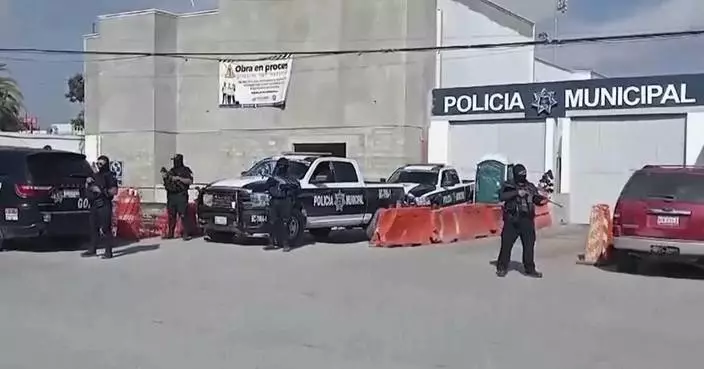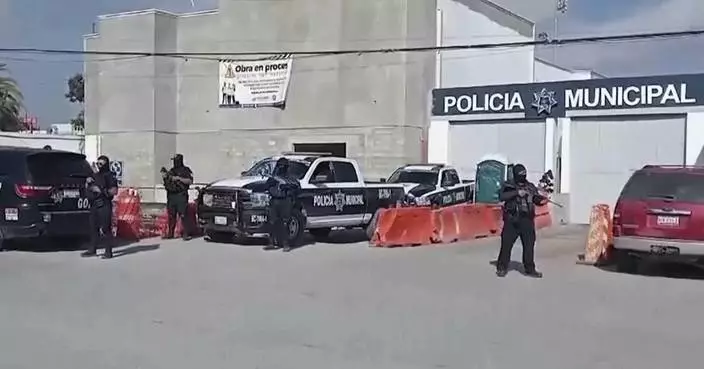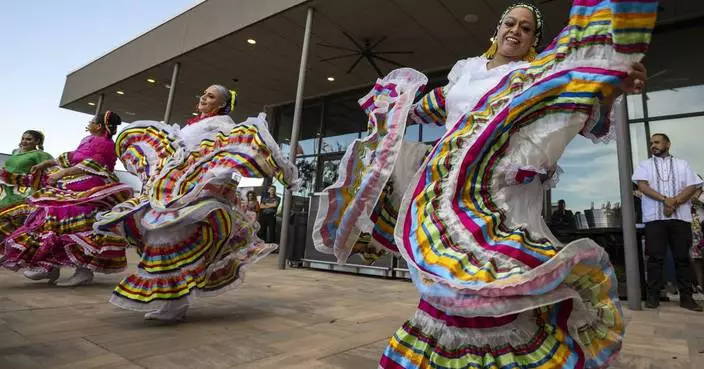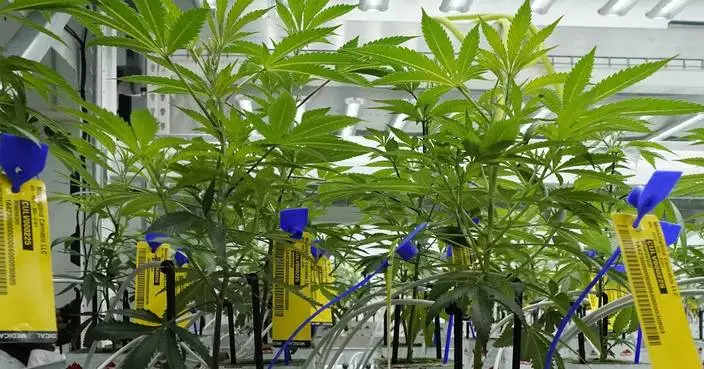Two humanitarian groups reported that the patrol destroyed water and food left for the dying and thirsty immigrants who just risked lives through the desert.
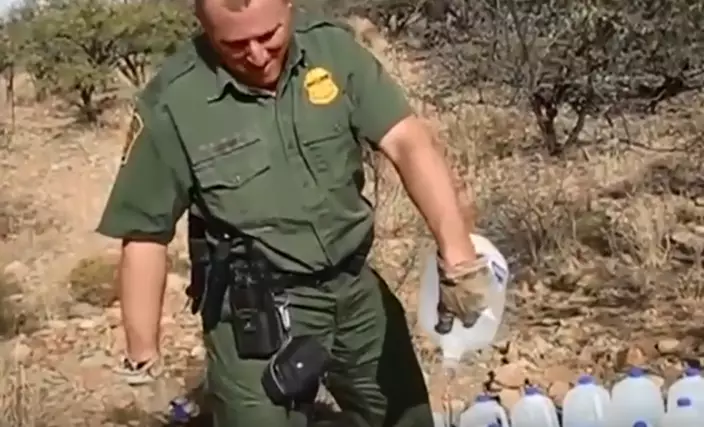
United States border patrol agents regularly destroy water and food supplies left in the Arizona desert for immigrants, worsening the living situation for those people who often died of thirst in baking temperatures, according to two humanitarian groups.
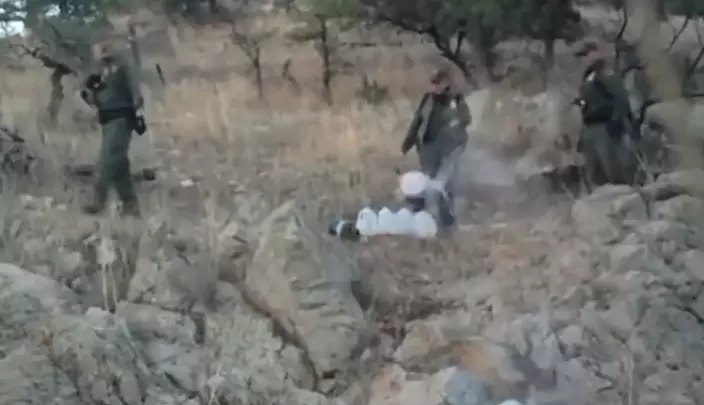
The agent is kicking to destroy water supply.
The two groups No More Deaths and La Coalición de Derechos Humanos released a report, revealing that water gallons have been sabotaged 415 times, on average twice a week, on average twice a week, along with the trail of the immigration in the desert, from March 2012 to December 2015.
The report said wildlife, hunters, hikers and other groups also damaged aid drops but it said the main damages are from border patrol.
The report said: 'Through statistical analysis, video evidence, and personal experience, our team has uncovered a disturbing reality. In the majority of cases, US border patrol agents are responsible for the widespread interference with essential humanitarian efforts.'
The report added that: 'The practice of destruction of and interference with aid is not the deviant behavior of a few rogue border patrol agents, it is a systemic feature of enforcement practices in the borderlands.'
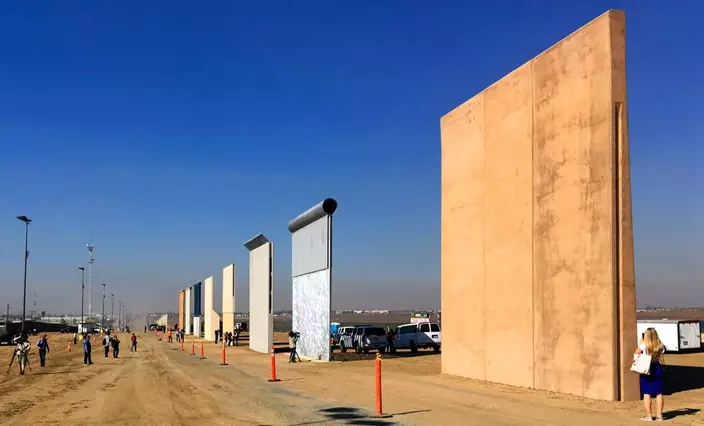
FILE - This Oct. 26, 2017 file photo shows prototypes of border walls in San Diego. The Trump administration has proposed spending $18 billion over 10 years to significantly extend the border wall with Mexico. The plan provides one of the most detailed blueprints of how the president hopes to carry out a signature campaign pledge. (AP Photo/Elliott Spagat, File)
The damage has affected 3,586 gallons. What does that mean?
Border crossers should drink between five to 12 litres of water daily, but few manage to carry more than seven litres through a journey which can last several days or even weeks.
Over the last two decades, some 7,000 human remains have been recovered from the U.S. borderlands. In Pima County alone, hundreds of migrants die each year making the crossing.
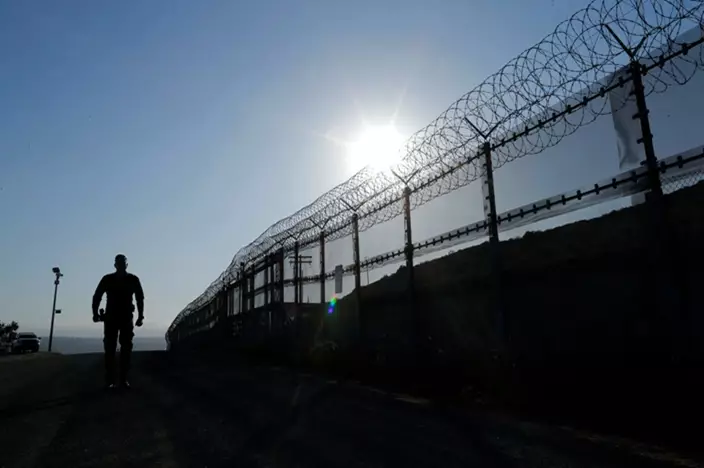
FILE - In this June 22, 2016 file photo, a Border Patrol agent walks along a border structure in San Diego, Calif. The Trump administration has proposed spending $18 billion over 10 years to significantly extend the border wall with Mexico. The plan provides one of the most detailed blueprints of how the president hopes to carry out a signature campaign pledge. (AP Photo/Gregory Bull, File)
Although the spokesman of the patrol agent insisted 'We don’t want to see anyone out there die.' But a former agent admitted to the two humanitarian groups that destroying water supplies was a way to make migrants weaker and easier to find.
One former Border Patrol agent told the groups: 'I also remember that the logic behind that, the logic that was imparted to us with that action, was that you stomp on their water, and ransack their food cache, in order to expedite their apprehension.'
MEXICO CITY (AP) — Two Australians and an American were doing what they loved on the stunning, largely isolated stretch of Baja California's Pacific coast. Their last images on social media showed them sitting and gazing at the waves, contemplating the breaks.
What happened to end their lives may have been as random as a passing pickup truck full of people with ill intent. The surfers were shot in the head, their bodies dumped in a covered well miles away. How it unfolded was the stuff of nightmares.
Brothers Jake and Callum Robinson from Australia and American Jack Carter Rhoad had apparently stopped to surf the breaks between Punta San José, about 50 miles (80 kilometers) south of Ensenada, and La Bocana, further north on the coast. They were attacked there on April 28 or 29.
As soon as police arrived at their last known camp site, it was clear that something had gone violently wrong.
There were bloodstains and marks “as if heavy objects had been dragged," leading to suspicions of an attack, the Baja California state prosecutor's office said in an attempt to reconstruct the scene.
Chief state prosecutor María Elena Andrade Ramírez told a press conference on Sunday that the killers apparently drove by, saw the foreigners’ pickup truck and wanted to steal its tires and other parts.
Such was the banality of evil, she said, that “they were not attacked because they were tourists. ... The evidence suggests they (the killers) did not know where they were from.”
The foreigners surely resisted, she said. “And these people, the assailants, took out a gun, and first they killed the one who was putting up resistance against the vehicle theft, and then the other two came along and joined the fight to defend their property and their companion who had been attacked, and they killed them too.”
Andrade Ramírez said the reconstruction of events was based on the forensic examiner's reports, noting all three had bullet wounds to the head.
There was a hurried attempt to destroy evidence. The foreigners’ tents were apparently burned. The pickup truck was driven miles away and burned. The assailants' truck was later found with a gun inside.
Then, at “a site that is extremely hard to get to,” the bodies were dumped into a well about 4 miles (6 kilometers) away. Investigators were surprised when, underneath the bodies of the three foreigners, a fourth body was found that had been there much longer.
"They had to have previous knowledge of it," Andrade Ramírez said of the attackers, acknowledging the possibility they were behind the previous killing.
The well had been covered with boards. “It was literally almost impossible to find it,” Andrade Ramírez said. It took two hours to winch the bodies out.
Prosecutors have said they were questioning three people in the killings. Two were caught with methamphetamines. One of them, a woman, had one of the victims' cellphones when she was caught. Prosecutors said the two were being held pending drug charges but continue to be suspects in the killings.
A third man was arrested on charges of a crime equivalent to kidnapping, but that was before the bodies were found. It was unclear if he might face more charges.
The third man was believed to have directly participated in the killings. In keeping with Mexican law, prosecutors identified him by his first name, Jesús Gerardo, alias “el Kekas,” a slang word that means quesadillas, or cheese tortillas.
Andrade Ramírez said he had a criminal record that included drug dealing, vehicle theft and domestic violence, adding, “We are certain that more people were involved.”
She emphasized that she could not discuss anything related to the suspects, or their possible statements, because that was not allowed under Mexican law and might prejudice the case against them.
Andrade Ramírez noted that the victims' families said the brothers and Rhoad had come many times to the seaside spot and never had any problem. This time, however, "there was no way to ask for help when the attackers showed up.”
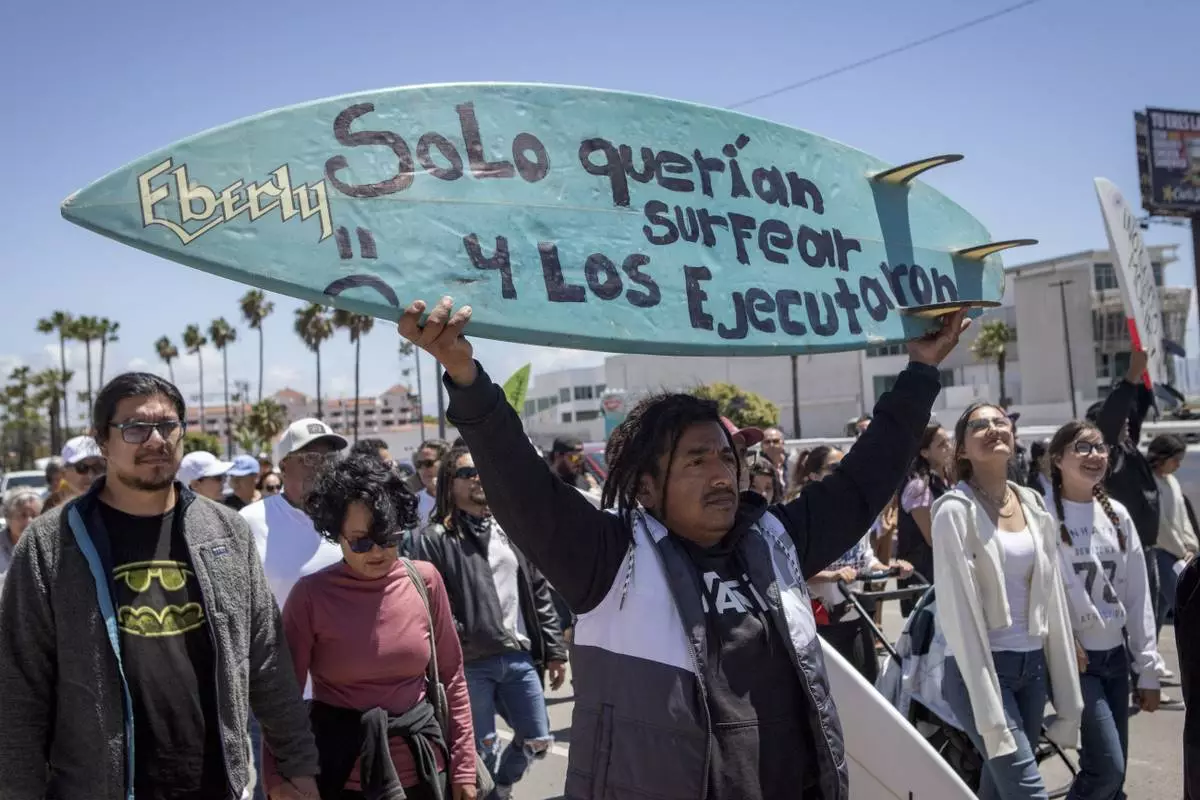
A demonstrator holding a bodyboard written in Spanish " They just wanted to surf and they were executed" protests the disappearance of foreign surfers in Ensenada, Mexico, Sunday, May 5, 2024. Mexican authorities said Friday that three bodies were recovered in an area of Baja California near where two Australians and an American went missing last weekend during an apparent camping and surfing trip. (AP Photo/Karen Castaneda)
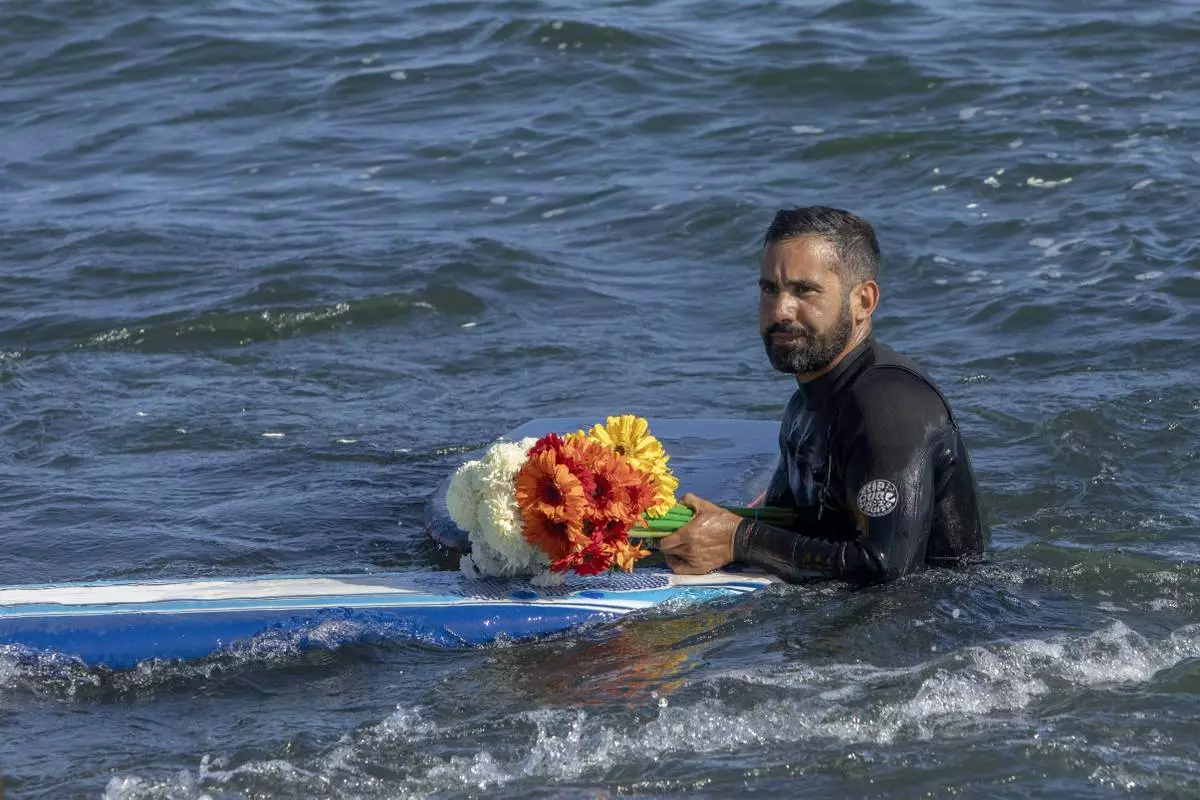
A man holds flowers during a tribute to 3 missing surfers in Ensenada, Mexico, Sunday, May 5, 2024. Mexican authorities said Friday that three bodies were recovered in an area of Baja California near where two Australians and an American went missing last weekend during an apparent camping and surfing trip. (AP Photo/Karen Castaneda)
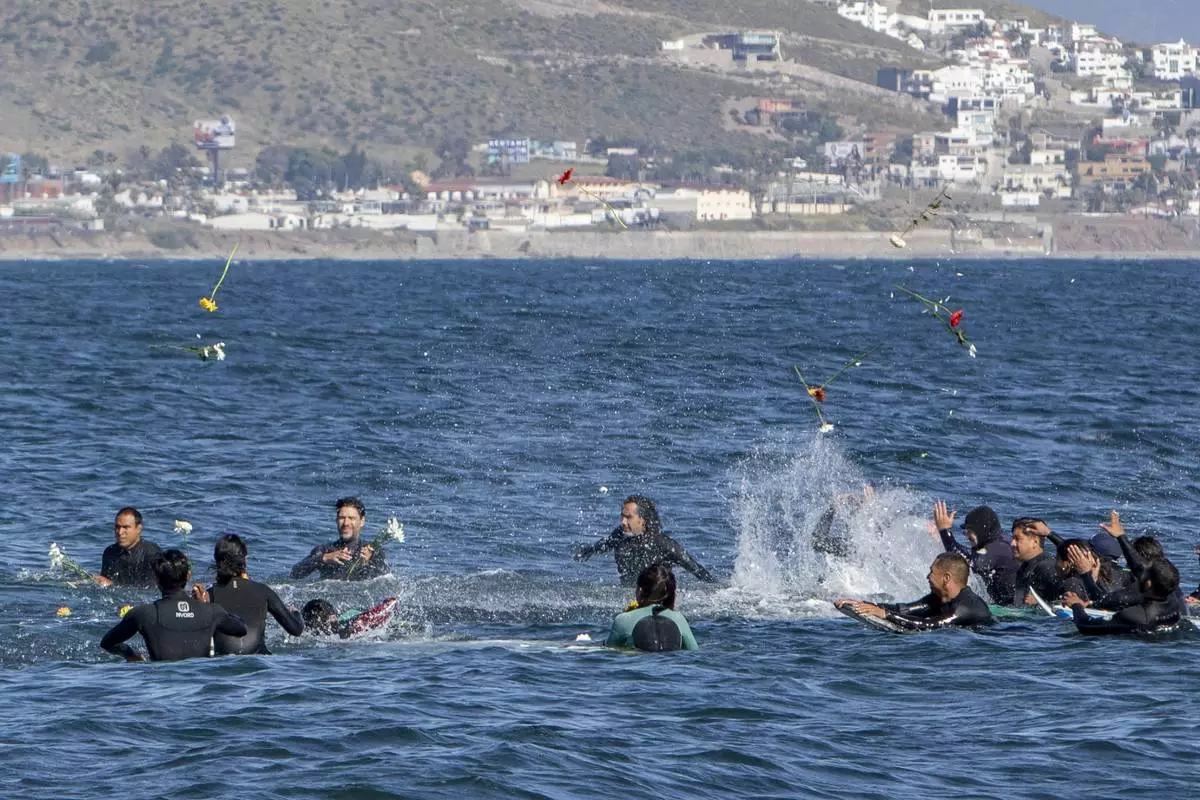
Surfers throw flowers during a tribute to 3 missing surfers in Ensenada, Mexico, Sunday, May 5, 2024. Mexican authorities said Friday that three bodies were recovered in an area of Baja California near where two Australians and an American went missing last weekend during an apparent camping and surfing trip. (AP Photo/Karen Castaneda)
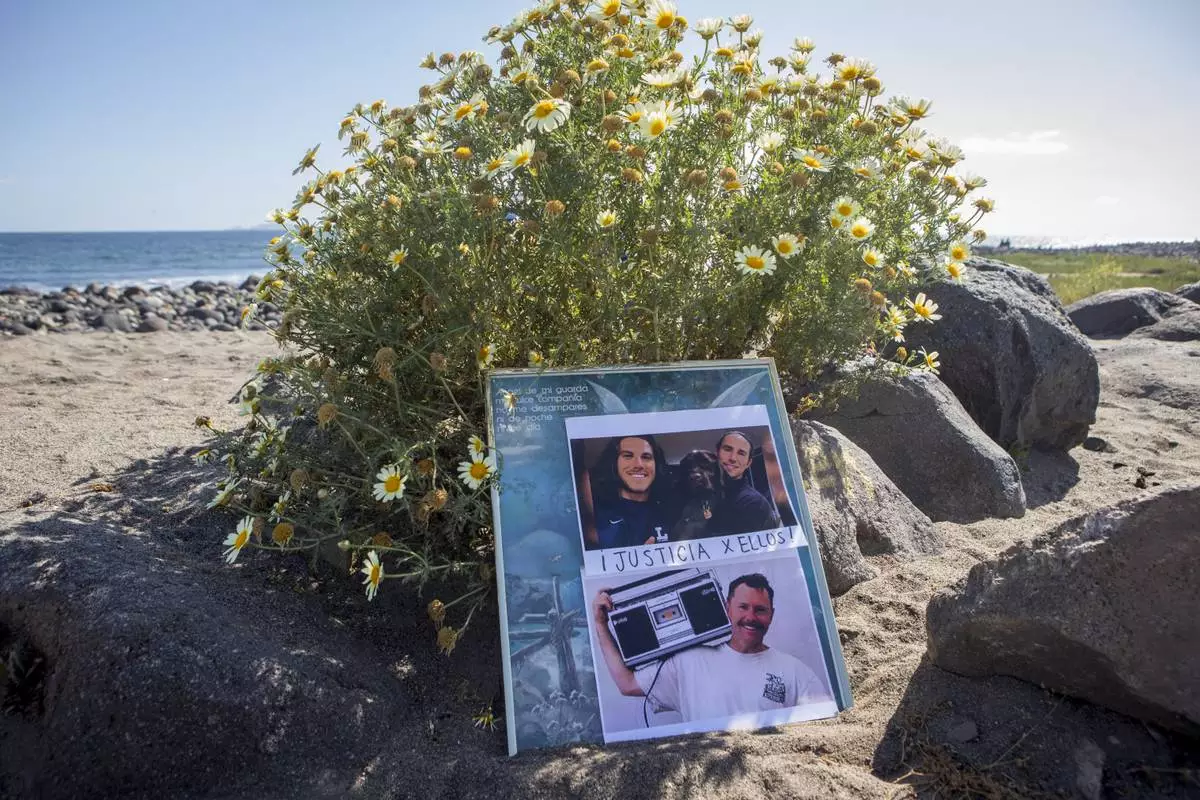
The photos of the foreign surfers who disappeared are placed on the beach in Ensenada, Mexico, Sunday, May 5, 2024. Mexican authorities said Friday that three bodies were recovered in an area of Baja California near where two Australians and an American went missing last weekend during an apparent camping and surfing trip. (AP Photo/Karen Castaneda)













